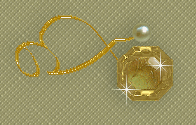



| St.
Catherine of Siena: Biography Adapted by Catholic Tradition from SAINT CATHERINE OF SIENA by Mother Frances A. Forbes, a nun of the Society of the Scared Heart in Scotland who was a convert and highly regarded by Cardinal Merry de Val, a close friend of Pope St. Pius X. Nihil Obstat and Imprimatur, 1913. Currently published by TAN BOOKS. Chapter 9 AGAINST THE TIDE  T
was duty alone that had drawn Fra Raimondo from a humble life of prayer
and penance in his quiet cell in the Minerva to act as papal envoy to
the King of France. Catherine's trumpet tones were ringing in his ears;
she was bidding him go forth and die, if need be, for the rightful
cause, to glory in suffering and in toil and to conquer in the name of
Christ. By nature he was neither a soldier nor a diplomat, but a man of
deep wisdom and insight into spiritual things-----a man
of thought rather than of action. T
was duty alone that had drawn Fra Raimondo from a humble life of prayer
and penance in his quiet cell in the Minerva to act as papal envoy to
the King of France. Catherine's trumpet tones were ringing in his ears;
she was bidding him go forth and die, if need be, for the rightful
cause, to glory in suffering and in toil and to conquer in the name of
Christ. By nature he was neither a soldier nor a diplomat, but a man of
deep wisdom and insight into spiritual things-----a man
of thought rather than of action.The ship in which he had embarked, having escaped the galleys of Clement, which were still guarding the mouth of the Tiber, reached Pisa in safety. From thence the travelers went by sea to Genoa, where they landed and proceeded on their way to France. At the frontier Jacopo di Ceva, Fra Raimondo's companion, was seized by the soldiers of Clement, and he himself was warned that his arrival had been expected and that he would meet with certain death were he to continue his journey. He therefore returned to Genoa, where he wrote to Urban telling him of what had taken place and remained awaiting further orders. To the Pope his conduct seemed perfectly reasonable; he bade Fra Raimondo stay where he was for the present and do his best to spread the truth among the Genoese. On Catherine, however, the news fell like a blow. She could not understand how anyone could fail to share her thirst for Martyrdom, more especially one who was so wholly in sympathy with her on all points as Fra Raimondo. She expected heroism from those she loved, and in her eyes, at least, he had not behaved like a hero. "You were not worthy to stay in the field of battle," she wrote to him, "but were driven back like a child; and you fled away willingly and were glad at the grace that God granted to your weakness . . . how blessed would your soul and mine have been if with your blood you had built up a stone in Holy Church for love of the Blood." From a letter which followed later it is evident that although Fra Raimondo feared that Catherine might love and respect him the less for his lack of ardor in seeking the Martyr's crown, he had no doubt but that she would be glad that he had escaped with his life. "I beg you, dearest Father," she writes, "to pray earnestly that you and I both together may drown ourselves in the Blood of the humble Lamb, which will make us strong and faithful ... You did not seem to yourself strong enough for me to measure you with my measure, and on this account you were in doubt lest my affection and love to you were diminished ... Could you ever believe that I wished anything else than the life of your soul? Had you been faithful, you would not have gone about vacillating so, nor fallen into fear toward God and toward me; but like a faithful son, ready for obedience, you would have gone and done what you could. And if you could not have gone upright, you would have gone crawling ... This faithful obedience would have accomplished more in the sight of God and in the hearts of man than all human prudences. My sins have prevented me from seeing it in you ... I, a vile slave, who am placed in the Field where blood was shed for love of Blood (and you have left me here, and gone away with God), shall never pause from working for you." This was not the only grief that touched Catherine through those who were dear to her. Stefano Maconi, the best beloved of her disciples, had been left behind on account of family affairs in Siena, from whence he kept up a lively correspondence with the "family" in Rome. Catherine, and Catherine alone, knew all that underlay Stefano's merry and light-hearted exterior. He had received a call to the religious life, and for some time past, nature and grace had been pulling in opposite directions. He was restless and uneasy in that world of which he was the spoiled child and in which with all his gifts he seemed destined to shine. Reading between the lines in the letters that seemed so full of life and gaiety Catherine had discerned the struggle that was going on, and she wrote bidding him come to Rome. But she had scarcely finished writing when a letter was put into her hands from the Abbot of Monte Oliveto, telling her that Stefano was about to join his community. Although Catherine was glad for the young man's own sake, the thought that he, who had been used to give her all his confidence and seek her help and counsel in every event of his life, had come to this decision without a word to her, and had even let her learn the news from another, was a cruel blow to her loving and sensitive heart. But, it was only a misconception. The abbot had misunderstood Stefano completely. He was busy at the moment trying to settle the family affairs that kept him in Siena, that he might hasten to his beloved Mother, for he had heard that the others were beginning to be anxious about her health. She alone, as he well knew, had the key to his heart and was therefore the only one who could help him. The conduct of Joanna of Naples, for whose conversion Catherine still hoped, was an additional grief to her. In April 1379 the papal forces, assisted by the Roman citizens, had gained a complete victory over the army of Clement, who had invaded the Roman territory. The French in consequence had been obliged to surrender the fortress of Sant' Angelo, which had been in their hands since the departure of the Cardinals for Anagni. The victory was believed by the Romans to be due to Catherine's prayers, and Urban, at her suggestion, resolved to make a solemn act of thanksgiving to God. Walking barefoot and attended by an immense number of clergy and laity, he went in procession through the city to St. Peter's amid the enthusiastic devotion of the people. On the defeat of his troops Clement had fled in terror to Naples, where Joanna received him with royal pomp and paid him homage with all her court, a court which had the name of being one of the worst in Europe. The Neapolitans, however, were far from sharing the opinions of their Queen. Urban was their countryman and they were for him to a man. The homage paid to the anti-Pope filled them with horror and indignation. They assembled in crowds, shouting: "Long live Pope Urban!" and soon broke into open rebellion. In a few days the city was in their hands, and Clement was again obliged to flee. With some difficulty he reached Gaeta, from whence he got safely back to Avignon. Civil war was now raging in Naples, and Joanna did not know where to look for help. In order to pacify her people she announced that she had deserted the cause of Clement, and ambassadors were dispatched to Rome to make her peace with Urban. Catherine rejoiced to think that Joanna had at last been forced to see the error of her ways, but her joy was short-lived. The submission had been only a trick to gain time while her husband was gathering a body of German troops to put down the insurrection. As soon as this had been successfully done, Joanna threw off the mask. Her ambassadors were recalled from Rome, and she announced herself once more as the partisan of Clement. Catherine made one last attempt to save the unhappy queen from the fate that she seemed determined to bring upon herself by sending her a letter which could have scarcely failed to touch a heart less hardened than Joanna's. "Dearest Mother in Christ sweet Jesus," she begins, "I, Catherine, servant and slave of the servants of Jesus Christ, write to you in His Precious Blood, with desire to see you compassionate to your own soul and body . . . Oh, how blessed my soul would be could I come into your parts, and lay down my life to restore to you the good of Heaven, and the good of earth ... Do not await the time which you are not sure of having. Do not choose that my eyes should have to shed rivers of tears over your wretched soul and body-----a soul which I hold as my own ... Fear, fear God, and place Him before your eyes, and think that God sees you, and His justice wills that every fault be punished and every good rewarded. Be merciful, ah, be merciful to yourself." But the moment of grace was past-----Joanna had made her choice deliberately. She had turned her back on that better self which Catherine's earlier letters seemed to have awakened into life for a moment, and she held on her downward way. Joanna was excommunicated by Urban some time after on the discovery of a plot to assassinate him which she had set afoot, and she died a violent death in the very castle where she was said to have caused her first husband to be murdered. The rejoicings that followed on the victory of the papal troops did not last for long. The Romans were proud and easily offended, and Urban was not the most conciliatory of men. The Prefect of Rome, who was neither a loyal churchman nor a law-abiding man, had taken possession of Viterbo, and Urban was determined to dislodge him at any cost. It was an unfortunate moment to choose to quarrel with a powerful enemy, and Catherine begged the Pope to be prudent. She wrote urging him to call a council general of the chief citizens, if need be, to decide the matter; to listen to their advice and, above all, to proceed with gentleness and moderation. "You know the character of your Roman children," she says, "that it is easier to lead them by gentleness than by any other force or by harsh words. And you know that it is most necessary for you and for the Church just now to keep the people loyal and obedient to Your Holiness. Pardon me, sweetest and holiest Father, for saying these things to you. I trust that your humility and kindness is content that they should be said to you." But it was difficult, if not impossible, for Urban to conciliate his enemies. The Romans at last broke into open revolt and even threatened to take his life. Nothing remained to Catherine but to pray and to suffer. She besought God to prevent the people from carrying out their threats. To her the city seemed full of devils, urging men on to evil. The fires of suffering were wasting her frail body as she wrestled with the justice of God, offering herself to suffer and to die for her people and for Holy Church. She was tormented by evil spirits who raged against her unceasingly, crying out that she had always pursued them and that they would be revenged on her. Still the prayer of intercession went up to Heaven, only interrupted by her efforts to pacify the leaders of the revolt. At last the people armed themselves and marched on the Vatican. Urban, who, if lacking in tact, was certainly not lacking in courage, robed himself in his pontifical vestments, ordered the gates of the palace to be thrown open and awaited them calmly, seated on the papal throne. At the sight of the quiet dignity of Christ's Vicar, the crowds fell back and left the palace without doing any harm. Peace was at last made, a peace which the Romans attributed to the prayers of Catherine and her influence over the revolutionary leaders. It was the last act of her political life. Her work, outwardly at least, was at an end. |

 E-MAIL
E-MAIL